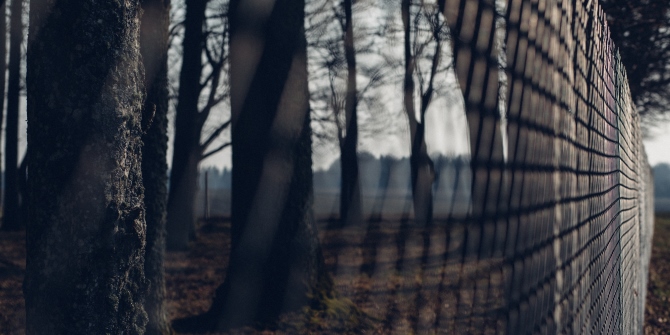Suraj Gogoi applies Ivan Illich’s concept of ‘examined life’ to the different responses to COVID-19 and other infectious illnesses.
Two American nationals fled from the Alappuzha Medical College in Kerala when the doctors in the hospital suggested that they should take the COVID-19 test. They were later caught when they were trying to leave the country. There are many other examples of people escaping medical intervention. What does such ignorance/disobedience tell us?
A quick glance at the Spanish flu pandemic in 1918-19 will show us similar behaviour from people—of ignorance and disobedience. Ignorance is not something which is specific to a culture or ethnicity. The state of San Francisco in the United States during the pandemic flu imposed a compulsory order to wear a mask. Wearing it was considered a duty. Many of them disobeyed the order and were arrested and subsequently fined for their refusal. A small anti-mask league was formed to oppose such an official decree.
Such health-related policing is not new. Health as a qualitative norm, notes Ivan Illich Illich (1992), goes back to the emergence of the nation-states. It was a norm for the armies, and in the 19th century with the growth of capitalism and mercantile economy we see this emphasis being imposed on the workers and mothers. Illich adds that health began as a duty and entitlement, later ‘transmogrified into a pressing need’.
Many people saw such an order as an infringement on people’s civic liberties. Perhaps this infringement is the reason why many people are running away or refusing examination. Could it be fear of isolation or is it a refusal to consider the dangers of the virus?
The process of examination precedes the process of cure, one we don’t have yet. Examination is a stage of identifying the problem, which is known to us. Now, having known the problem, the examination process is narrowed down to determining the presence or the absence of the virus which involves a lab experiment.
A person, however, can become a patient by choosing it voluntarily, involuntarily and even accidentally. Let me elaborate briefly on the two process of voluntary and involuntary examination which I categorise here.
Voluntary examination is when one offers to test oneself based on the symptoms that might be associated with the virus. Usual symptom includes fever, coughs and breathing difficulties. Such an examination also means that you want to be examined and have faith in medicine.
Illich shows us convincingly in his work Medical Nemesis that we are victims of the medical establishment where health itself is also in danger from this establishment. Illich uses the adjective ‘iatrogenic’ to describe the body percept that come with modern medicine. Iatrogenic is nothing but examination of the relationship between the body perception and the medical establishment.
Medicine started exerting tremendous influence over our body since the middle of the 20th century. Our modern bodies are now an extension of medicine and our life is enormously surrounded around it.
Every epoch the body emerges differently, and the ‘flesh’ is also felt differently. Illich shows us that every age has ‘a style of experiencing the human condition’ which he calls the flesh. Coronavirus gives us a new language of the flesh. Seemingly, through the people who submit to it the monopoly of medicine over our human condition is once more established.
Involuntary examination may refer to two kinds of intervention. At one level it might mean a forced examination, one where there is no choice of getting out of it. This intervention may include positive preventive measures such as constant body temperature record, isolation, and other measures to stop the spread of the flu. The second kind of involuntary examination may include examination of nationals across international borders, where strict quarantine provisions are in place, and travel bans imposed. This examination shows how nation-states and border check posts are lit up by the virus in attempts to protect human lives as a preventive measure. Not only people, but goods also undergo examination.
In any case, the virus creates a metamorphosis of examination of our lives. The effects are powerful and different. It is felt variously by different countries and categories of people, reflecting our pain, love, fear and panic in various shades.
Illich (1992) argues convincingly that each flesh during the plague in Florence in 1622-23 was ‘caught, interpreted, and reflected by different mirrors.’ Similarly, coronavirus also mirrors differently for the poor, for the Dalits, for the people from Northeast India and taxi drivers turning down ‘Chinese looking people’ in the Philippines, among others.
Whether the virus creates ‘bare life’ or a ‘state of exception’ remains debatable, for I don’t think the virus is an alien. But I am certain, and I agree with Illich here, that we need multiple responses to the virus of the felt body, the flesh created by the virus, like each Florentine did to the plague. Illich (1992) writes:
“Barbers and surgeons, together with candlemakers and smelling-salt vendors, magistrates and grave diggers, chaplains of special sanctuaries for desperate cases and incense merchants, each had their special response to the epidemic. Each ‘guild’ was mobilized to become an ‘anti-body’ of the plague.”
Can we think of creating such multiple anti-bodies in a world monopolised by medicine and the medical effects which creates a unidirectional approach to the virus mediated by the state?
We are now all vulnerable to the virus which can affect and infect anyone, but what is consistent here despite the different mirrored images, is that we are all brought under an ‘examined life’. Coronavirus mirrors the human flesh of our times, and in turn our human condition which remains examined.
References:
Illich, Ivan (1992) In the Mirror of the Past, New York: Marion Boyars.
Illich, Ivan (1976) Limits to Medicine: Medical Nemesis – The Expropriation of Health, New York: Marion Boyars.
The News Minute. Foreign couple who ran away from Kerala hospital traced, under isolation. 14 March 2020. Link: https://www.thenewsminute.com/article/foreign-couple-who-ran-away-kerala-hospital-traced-under-isolation-120189
Image Source: Police Officers in Seattle, Washington, wearing protective masks during the influenza epidemic in 1918. National Archives.





